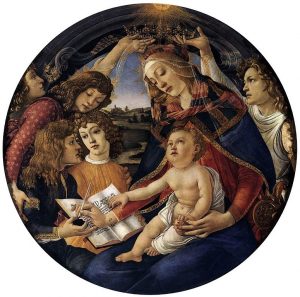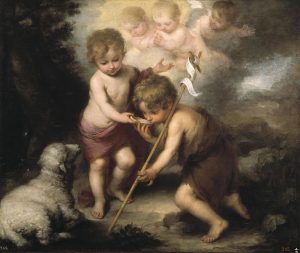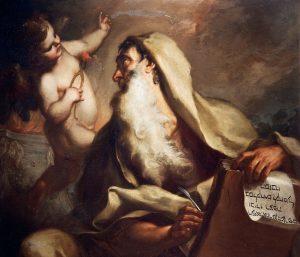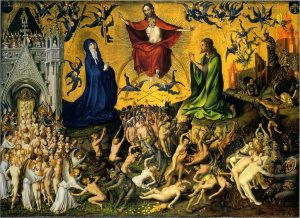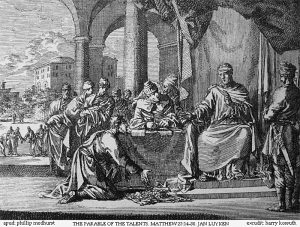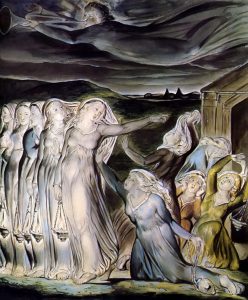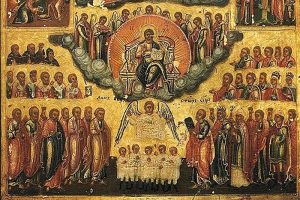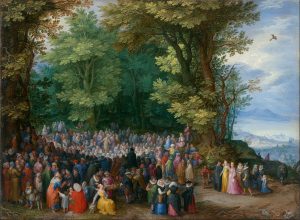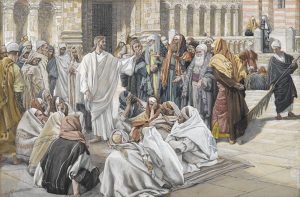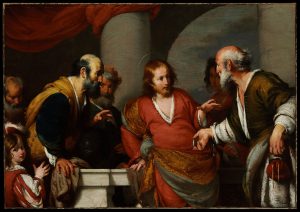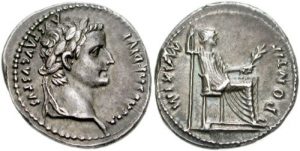Thoughts on Sunday’s Lessons for Dec. 20, 2020
First Reading: 2 Samuel 7:1-11, 16
As we reach the fourth and final Sunday of Advent and turn toward Christmas, our readings trace the Messianic line of King David that Christians follow down the ages to Jesus.
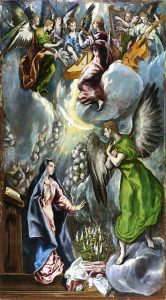
The Annunciation (1597-1600), oil painting on canvas by El Greco (1541-1614). Prado Museum, Spain. (Click image to enlarge.)
In the first reading, King David, consolidating his earthly kingdom, was dissatisfied with the people’s custom of keeping the Ark of the Covenant in a mere tent. David wanted to build a great temple for God to live in. But God, speaking through the Prophet Nathan, dismisses this idea. God lives with the people. God’s home, David hears, is with the House of David, the dynasty of God’s people.
Psalm: Luke 1:46-55 (Canticle 15)
For the second Sunday in a row, the Magnificat, the surprisingly radical Song of Mary, is available as an alternative Psalm reading. As we hear in the Gospel for the week, the Angel Gabriel has told Mary that she will give birth to King David’s heir, the Messiah. In the verses of Luke following this Gospel, Mary goes to visit her relative, Elizabeth, who is pregnant with the child who will be John the Baptist. Elizabeth feels the infant John move with joy inside her when Mary arrives. Elizabeth declares Mary the blessed mother of God, full of grace. In response, Mary sings these starkly radical verses that foreshadow Jesus’ own teaching. She praises a God who scatters the proud, casts down the mighty, and sends the rich away hungry, while filling the hungry with good things.
Alternate to the Psalm: Psalm 89:1-4, 19-26
The Psalmist celebrates God’s covenant with David, a royal lineage that God established to last forever. Even through the devastation of war and the pain of exile, when Israel and Judah feared that God’s promise might have been revoked because the nation had broken its covenant by failing to be just and righteous, the Psalms sing of a new King David. This coming Messiah and King would rule the land forever, “from the great sea to the river,” from the shores of the Mediterranean to the Jordan.
Second Reading: Romans 16: 25-27
Throughout his powerful letter to the Romans, Paul has encouraged Rome’s Gentile and Jewish Christian communities to heal their differences and get along. Now, in a ringing doxology that concludes the epistle, he emphasizes that God’s covenant with the people, expressed through the prophets, is given for all humanity, all living forever in glory through Jesus Christ.
Gospel: Luke 1: 26-38
On this Sunday before Christmas, we hear Luke tell the familiar story of the Angel Gabriel’s visit to a young Palestinian woman named Mary, betrothed to Joseph of the House of David. Through God’s Holy Spirit this young virgin will give birth to a son named Jesus, who will inherit King David’s throne and rule over an eternal kingdom. She responds to this amazing news with simple, trusting acceptance: “Let it be with me according to your word.” And then, in the following verses that we read in the first alternative for Sunday’s Psalm, she goes on to utter the poetic, prophetic words of the Magnificat, the Song of Mary.

